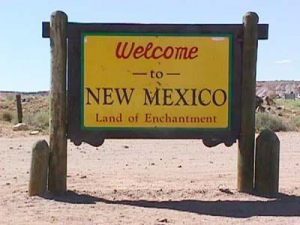A Freedom Outlook for New Mexico’s 2015 Legislative Session

By Paul Gessing | Watchdog Opinion
The 2014 elections represented nothing less than a seismic shift in New Mexico’s political system. Gov. Martinez won re-election handily, but the real story was the Republican takeover of the House of Representatives for the first time in 62 years.
For New Mexico, this political shift is nothing less than a once-in-a-lifetime opportunity to improve itself. New Mexico has traditionally struggled with high poverty rates, poor education levels, and an over-reliance on both federal spending and mercurial commodity prices, particularly oil and natural gas.
In recent years, oil and gas alone have generated 31 percent of New Mexico’s General Fund revenues. Also, according to data from the Mercatus Center, New Mexico topped the nation with 32 percent of its workforce occupied in public-sector and federal-contract jobs as a percentage of total jobs.
With federal employment stagnant, natural gas prices continuing to hover at historically-low levels and the recent collapse in oil and gas prices, policymakers in the Land of Enchantment face a dire need to jump-start the State’s weak private sector. An indicator of that weakness is that New Mexico is home to only one publicly-traded company headquarters, those of PNM, the State’s largest utility.
What is to be done?
For starters, the Legislature is going to be considering several labor reforms, most notably “right to work” legislation. Currently, 24 states have such laws on the books. These laws simply prohibit union membership or the payment of union dues as a condition of employment. Recently, “rust-belt” states of Indiana and Michigan have adopted similar laws.
Right to work states consistently outperform other states in the growth of employment, income, and population. Business leaders and site selection experts alike list such laws as among the most important features they look at when considering where to locate new businesses, especially those “economic base” jobs such as manufacturing.
Another important pro-freedom labor reform bill being considered this session include an effort to repeal New Mexico’s mini “Davis-Bacon” prevailing wage law. These laws cause taxpayers to spend between 10 – 15 percent more on public works projects like roads and schools than necessary. Given the budget struggles facing New Mexico due to a struggling economy, reduced federal spending in our state, and the recent decline in oil prices, taxpayers cannot afford to spend more than necessary on basic public works projects.
Tax credits for school choice will also be considered. This form of school choice will allow children of low-income families to attend the school of their choice rather than the school chosen for them based on their neighborhood of residence. Given New Mexico’s educational struggles and the success of school choice programs in other states, it is imperative that policymakers expand educational options.
Tax credits can be “revenue-positive” for New Mexico’s budget while at the same time providing an essential life-line for children struggling in traditional government schools.
The Rio Grande Foundation has also worked to get the state to study the issue of New Mexico’s federal lands and how they might be better managed under state control. A staggering 42 percent of New Mexico is currently under federal control. Indian reservations, military installations, and national parks will not be considered for transfer, but traditional “multi-purpose” lands held by the Bureau of Land Management and the National Forest Service will be considered.
The effort for this session is limited to setting up a process to study legal issues involved in a land transfer. It will also study the impact such an effort might have on New Mexico’s budget and a variety of interested stakeholders including, but not limited to, Hispanic Land Grant families, New Mexico’s extractive industries, and outdoorsmen.
Lastly, but by no means least important, is an effort under way to address the issue of civil asset forfeiture. This process was created as a means of going after the assets of drug dealers and kingpins and it has been used to seize $3 billion since just 2008. The problem is that the process has too often been abused in ways that allow police to unfairly seize the assets of innocent Americans for the financial benefit of local police forces.
President Obama’s administration recently recognized the serious problems with asset forfeiture when his Department of Justice banned state and local police from using federal law to seize cash, cars, and other property.

